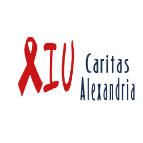03 – 4840138
aiu_caritasalex@yahoo.com
Stories

A short and lonely life
My granddaughter of eight years passed away, despite all my efforts to look after her. For I was all she had after the loss of both her parents. No, it wasn’t a road accident – it was HIV.
The story began when my eldest son got married. As the days passed, his financial circumstances worsened, until what he once earned in one day, he was unable to make in an entire month. So he was forced to find work in one of the Arab Gulf States. My son left me in a simple rural village, laden with poverty and suffering, in pursuit of a better life for himself and his wife.
A few years later my son returned brimming with hope and happiness. But the joy of his return did not last long. Soon afterwards, he began showing symptoms that doctors could not explain. He suffered from frequent fevers and was always exhausted, while also suffering rapid weight loss. My only consolation was the fact that his wife was expecting and, after a few months, my eldest son would become a father.
But his condition grew worth, and in one of the Fever Hospitals he had several tests done. When the results came in, they indicated that he was infected with HIV – what everyone knows as AIDS – and that the virus was at a very last stage. The disease consumed all his strength and he died overnight. If only we had discovered and treated it earlier! The only thing that offset my sorrow was that soon I would see him again through his daughter, who was still in the fetal stage at that time.
Our grief – along with our ignorance about the means of transmission – distracted us from having my son’s wife tested, and we didn’t realize that she too was infected. We were torn between anticipation of the new child and the sorrow that hung over the house like a cloud. Finally, my daughter-in-low delivered her baby. But soon after birth she was consumed by persistent fever, and a few days later she left this world, as if refusing to live it without her husband.
We realized then that she too had been infected with HIV, and so, of course, was her newborn daughter. Her short life was marked by fluctuating conditions: one day she was healthy, and the next symptomatic, which made me worry about her playing with the neighbor’s children. She didn’t enjoy her childhood like other girls did, and the pain of orphanhood was painted all over her face. As the days passed her pain become worse and she began showing new symptoms of the disease, making her as vulnerable as a tree-leaf was to strong wind. She would always take her medication, but for lack of money, I couldn’t always provide her with adequate food. She could barely find crumbs to eat, but I was unable to offer her more than that. I’m an old woman getting by on a small pension that is far too little to put enough food on the table, while the man of the family is no longer with us.
I admit I was afraid of disclosing my granddaughter’s status, or of facing the inevitable constraints against her going to school. I was afraid they would find out about her condition and refuse to admit her.
My ignorance of her rights led me to deprive her of formal education, and I settled on sending her to the kottab next door to learn some verses of the Holy Quran.
My granddaughter has been plagued by numerous problems, due both to the side effects of treatment and malnutrition. But her greatest sorrow was the sense of isolation from her peers. She always took to herself and preferred to be alone. Perhaps the loss of her parents, or what she heard from other children about her illness, were the reasons behind her pronounced introversion.
At the beginning of the new school year she would see the other children head off in their new school uniforms while she would stay home. At holidays she would see her cousins exchange kisses and receive gifts from their parents, while she had neither mother nor father. I could only take her to the cemetery to visit her departed parents and pay her respects. The sense of isolation followed her everywhere.
I’ll never forget her face when she asked me, each time she took her medication, “why all these drugs? Why am I not like my neighbors?” My heart bled from grief because I knew what she did not. In her final days the medication brought little improvement, and her condition only deteriorated further. But our hands were tied; there was nothing anyone could do to save her.
My granddaughter left this world having faced tremendous suffering and persistent sense of isolation and exclusion. Perhaps she found comfort in her final resting place next to her father and mother, who she had to endure her short life without.

